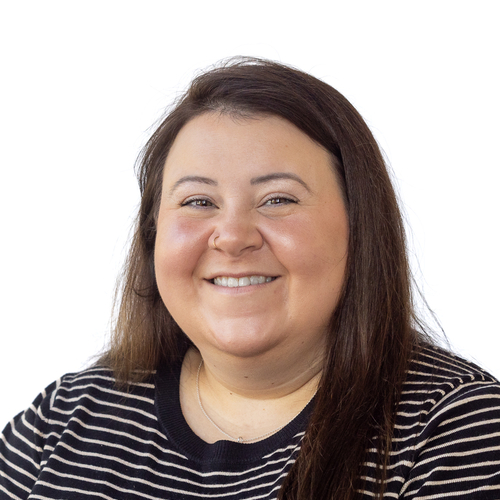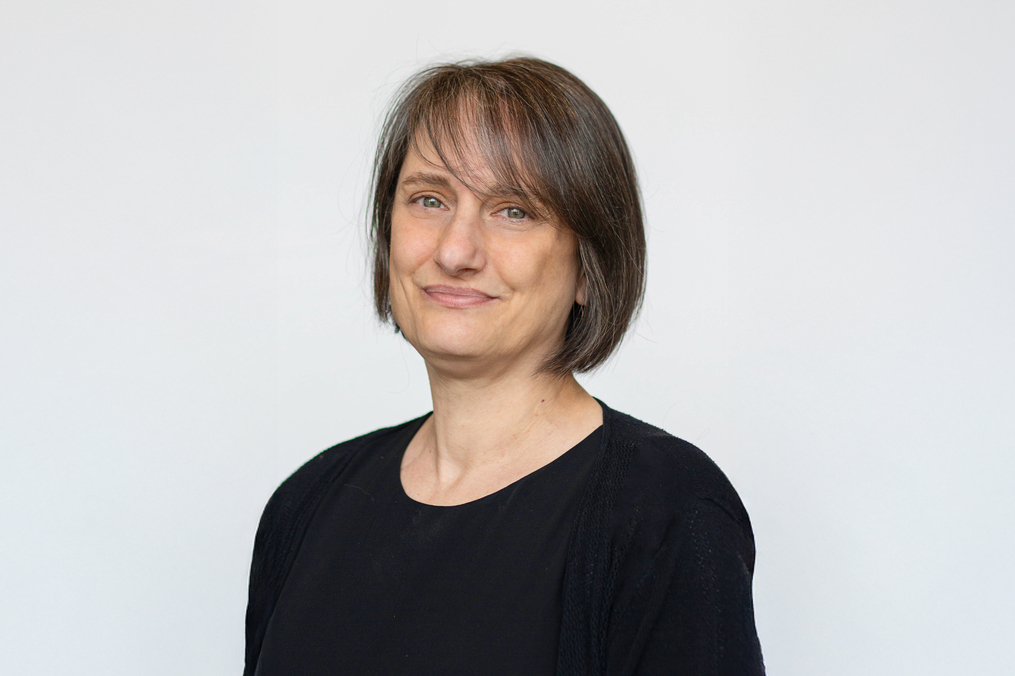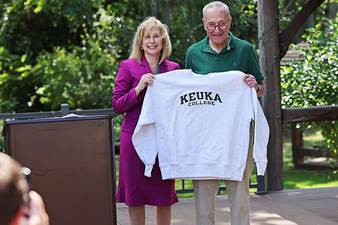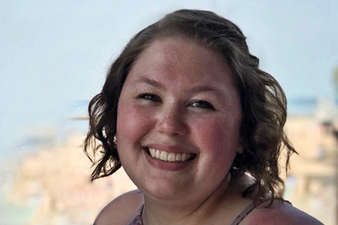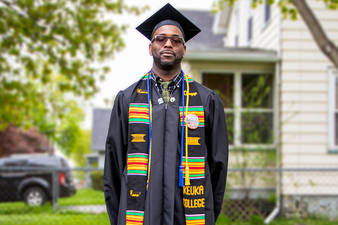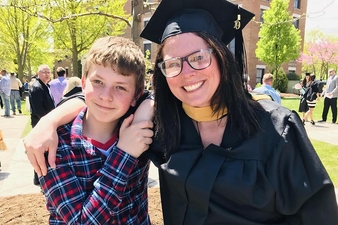Make a Career Change and Start Becoming a Social Worker Today
If you're interested in becoming a Social Worker and already have a bachelor's degree in another discipline, our MSW Foundations program will prepare you with the knowledge and hands-on experience you'll need to become an outstanding practitioner.
The U.S. Bureau of Labor Statistics reports an above-average demand for Social Workers in the next eight years. The MSW sets you up for success by building your background in appropriate communication and conduct, the National Association of Social Work (NASW) code of ethics, and an introduction to diverse populations and their needs.
You’ll be prepared to deliver effective, advanced psychotherapy and psychosocial services in a variety of settings dealing with mental, emotional, and social issues. You'll also have the education necessary to seek state licensure to enter private practice.
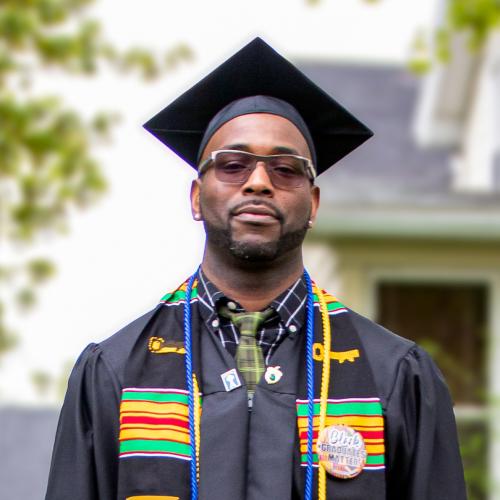
We’ll Help You Make a Difference
When Caswell Smith ’19 decided, “I want to be that one person in someone’s life who makes a difference,” he knew Keuka College would help him hone his social work skills.
Today, he’s improving lives in the Rochester City School District.
Learn More About MSW Foundations
We make it as convenient as possible for working adults like you to start on the path of becoming a Social Worker.
Admissions Requirements
- Hold a bachelor’s degree from an accredited institution
- Have a minimum cumulative grade point average of 3.0 on a 4.0 scale
- Have a C or better in writing, statistics, and human biology courses
If you have a bachelor's degree in Social Work from a CSWE-accredited institution, you're eligible for the Advanced Standing MSW program and do not need to complete the Foundations year.
How to Apply
- Complete your Application for Admission online
- Submit all official transcripts from each college or university you've attended
- Submit all supplemental items (2 letters of recommendation, current résumé, and essay)
- Pay your non-refundable $50 application fee
- Keuka College offers rolling admissions; however, graduate programs that require a field practicum must allow additional time to arrange individual placements. We strongly recommend that graduate applicants apply by February for the best opportunity for a preferred practicum site for 2021 programs.
Worried About Something?
We realize one size never fits all. If there's something on your mind, reach out to us and let us know! Give us a call at (315) 279-5254 or 1-800-335-3852 or by email at [email protected].
The Keuka College MSW Foundations program is designed for those with a bachelor's degree in a discipline other than Social Work to graduate prepared to practice.
The Foundations component is 11 months of full-time coursework on our home campus, focused on building your knowledge base and experience in the field.
- We also offer the Master of Social Work fully online
After you complete the Foundations year, you can choose to finish the rest of your MSW as either a full-time student on our home campus (completed in an additional 9 months) or in a part-time format at one of many locations throughout New York State (completed in an additional 20 months).
Your MSW Foundations year includes a number of courses to introduce you to generalist social work practice, blending theory with practical application.
Our experienced faculty will guide you in developing skills within the framework of the National Association of Social Workers Code of Ethics. Areas you'll explore include:
- Human Behavior (Psychology and Sociology)
- Ethics and Diversity
- Social Policy
- Research Methods and Practices
- Clinical Field Placement
A foundational course that provides and examines the social work profession through the scope of historical development, related theories, and understanding of current practice. We will cover the foundational generalist practice skills for work with all three levels of practice: micro, mezzo, and macro levels. As a starting point to the social work profession and its values, ethics, theoretical base and generalist practice methods, this course provides fundamental knowledge and skills required as students foster their professional social work identity.
Through the utilization of conceptual and experiential learning activities, this course promotes the acquisition of knowledge and skills related to group processes. Specifically, the formation, definition and process encapsulated within a variety of diverse groups will be discussed, along with intervention strategies and techniques. The course draws heavily on the generalist theoretical framework in the social work and graduate curriculum, and moving the culmination of this to a practice setting. A variety of field and in-class activities will enhance the student's ability to work with groups.
The purpose of this course is for students to develop a critical understanding of the principles and structure of the NASW Code of Ethics. From this knowledge base, students will scrutinize ethical dilemmas and their application in relation to their personal and professional self - focusing on practice with diverse populations and individual difference. These areas include, but are not limited to: race, gender ethnicity, culture, class, sexual orientation, religion, physical or mental disability, age and national origin. Through this critical inquiry, students will become more aware of and sensitive to these issues as well as in developing skill to work with diverse populations.
This course commences with a review of the primary concepts and principles of social work research methodology, followed by more thoughtful exploration of these concepts and practices. Emphasis will be placed on developing skills necessary to successful MSW practice. Respect for the unique characteristics of diverse populations will be stressed as the course covers social work research in light of diversity, multicultural biases and social and economic justice.
This seminar course includes both a classroom and an experiential learning component which allows the student an opportunity to integrate knowledge learned from the foundation courses. Students are required to complete a field practicum placement that is 16-hours per week and conducted in a pre-approved social service agency. The focus of this first in a series of two courses will be on becoming familiar with the social service agency, the intern's role and function at the agency, as well as beginning to integrate classroom learning from the foundation courses to practice applications. Prerequisite: Acceptance into field agency for MSW field practicum.
This course focuses on the student's development and integration of professional use of self in their direct practice with family systems and couples. This course builds on the knowledge and skills gained in SWK-505 Social Work Practice I (work with individuals). This course will begin to expand the student's view of generalist Social Work practice by moving from micro to mezzo approaches. Special emphasis is placed on both diverse populations and awareness of use of self in the professional role. Students continue to develop and refine their skills in professional writing, advocacy, and interviewing.
Generalist Social Work Practice focuses on macro level social work practice which includes the study of community systems within the social environment. This course critically examines the reciprocal dynamics between community members, the social worker as a professional and entities including macro level government, funding agents, and human service agencies. Theories and practice of community organizations, needs assessments and the social worker's role in all of the above will be discussed.
This course focuses on social welfare policy analysis and its application. An examination of selected laws, programs, benefits and services that form the basis of social welfare policy in the United States. The structure of service delivery systems, organizations and social inequities in service delivery is considered in the context of policy analysis. Advocacy and other change strategies that promote social and economic justice are explored.
This course focuses on expanding student knowledge related to human bio-psycho-social-spiritual development through the life stages, including knowledge about social systems in which individuals live (families, groups, organizations, instructions, and communities). The application of systems to a social work perspective of human development; emphasis on life situations encountered by generalist social workers and the impact of factors such as oppression, discrimination, poverty, and sexism.
This seminar course is the second of a two-part series in which students are provided an experiential learning opportunity to complement the knowledge gained in their foundation curses. Students are required to complete a field practicum placement that is 16 hours per week in a pre-approved social service agency. During this semester, the focus will be on practicing social work skills with clients in agencies.
Writing for Professionals prepares graduate students with the knowledge and skills necessary to successfully meet the scholarly demands of Keuka College as well as the writing standards of practitioners. This course provides the student practical experience in the application of APA writing skills that are necessary for graduate school and employment success. This is achieved through the completion of a writing portfolio and subsequent analysis of their individual writing strengths and areas of need, which will be shared with program course instructors.
Utilizing an ecological/systemic conceptual framework this course is designed to help students expand and integrate theoretical knowledge and skills through which social work assessment and intervention may be carried out. Course content draws upon concepts and principals of psychodynamic, cognitive-behavioral, humanistic and family/systemic theories that focus on intrapsychic and transactional dynamics of an individual within various systems. The course explores the interconnected nature of these theories with emphasis on integration of the use of theory with social work principles and values as a way to guide competent social work practice with individuals. Therapeutic challenges and opportunities embedded in the various phases of the helping process are examined. Particular attention is given to evidence based methods of assessment and intervention within agency-based and socio-cultural contexts.
Since mental health issues are ubiquitous in all social work settings and practice, it is essential that social workers be familiar with conceptualizations and current developments in the area of psychopathology. This course is designed to develop a students' understanding of the bio psycho social model of psychopathology, including theories of etiology and diagnostic assessment of behavioral or psychological syndrome or patterns that are associated with an individuals' present distress. Course content will primarily be focused on the accurate classification and diagnostic criteria for the major mental disorders and developing an adequate understanding of the limitations of diagnostic assessment. Students are familiarized with various assessment measures used for psychiatric symptomatology. Ethical and socio-cultural factors in diagnosis and culturally competent professional application of diagnostic knowledge will be emphasized throughout the course.
The purpose of this course is to facilitate student competency in identifying and effectively confronting increasingly complex ethical questions and issues faced in daily social work practice. In addition to a critical review of the Social Work Code of Ethics, this course will address relevant ethical models and theories, steps to ethical decision making and ethical dilemmas specific to practice with individuals, families and groups. Finally the course will cover a series of ethic's related topics most encountered in contemporary practice. These included bioethics and risk management. Through this course, students will become more self-aware of their own values and biases, allowing them to solidify their professional identities. They will develop ethical decision-making capacities necessary for sound practice that is consistent with social work values and competencies.
This course is designed to prepare the Master's level social worker practitioner with the knowledge and skills necessary to engage in research practices that advance the knowledge base of the profession and meet the needs of agencies, funders, client systems and other various stakeholders. This course will cover research methodology and evaluation skills across the micro, mezzo and macro levels. This intensive advance standing course contains material generally obtained during the foundation year. Upon completion of this course, students will be proficient in their use of research to inform practice and ability to use practice to inform research.
This is the first course in a series of two in which students utilize several Clinical Social Work Practitioner skills through seminar and field education experiences in pre-approved social service agencies. The students expand their expertise in the area of practice of their field practicum while developing clinical skills with an emphasis on micro and mezzo. This course provides experiential learning along with discussion and assignments that support integration of theory as well as professional ethics and values. Through the completion of this two course sequence, students continue to master the competencies and practice behaviors required to become independent social work practitioners. Although each field placement is unique, students will be assessed on their level of competence in social work practice behaviors. Students will need to complete a minimum of 260 hours of field education to complete this course.
This clinical practice course teaches fundamentals in family therapy and counseling across the family life cycle. Students continue to develop knowledge and skill of various assessment and intervention strategies that are based within various family systems theoretical frameworks. This course provides the students practical application linking theories to techniques that are commonly applied in family therapy and counseling. This broad exposure provides the student with a wide array of perspectives and techniques to utilize in various settings. All families undergo changes and transitions that induce stress. This course explores these common family stressors so that students will have a better understanding as to why a family may be in need of counseling. Particular attention is given to diversity and how diverse families experience various family stressors.
This course concentrates on the basics of trauma theory, etiology, and treatment of traumatic symptomatology so that students can develop the knowledge and skills necessary to effectively treat survivors. Emphasis will be placed on the therapeutic, developmental, cultural, and social needs of the individual and their family system across the life span. Specifically, the course will review the assessment process, including frequently used standardized measures, and the various intervention approaches utilized with the population. Therapeutic considerations impacting the effectiveness of interventions, such as the therapeutic relationship, trust, and professional self-care, will also be reviewed.
This course is designed to enhance the Master's level social work student with the knowledge and skills necessary to engage in practice behaviors across various levels. Specifically, this course is designed to further engage social work students in social welfare advocacy by increasing their knowledge of the social welfare state, its history and development over time, and the impact it has on a diverse range of policies, programs and individuals. Students will further understand the values and beliefs underlying the contemporary welfare state, how this system is funded, the impact of the system at various levels, as well as become familiar with many of the basic social welfare programs currently in place.
This course provides the student with advanced understanding of human behavior in the context of social environment. This course further examines the family, the community, and the organization as social systems and contexts for the development of individuals and groups. The course reflects social work's unique integration of theories drawn from sociology, psychology, biology, anthropology, and economics to understand the multiple influences on behavior. Human Behavior and the Social Environment has the students apply sociological theories for critical analyses of society, communities, social institutions, and social organizations.
The capstone course is the final course of the MSW program. This course is the culmination of a process of becoming an Advanced Clinical Social Worker. Building upon SWK-628, students further establish social work knowledge and skills in the classroom and through application in field practicum. Through self-reflection assignments, students develop self-assessments that describe their professional growth and development, articulate the integration of learning, highlight accomplishments, and develop a plan for further professional growth. As similar to the previous courses, students have the benefit of seminars to discuss these areas with members of their cohort for additional insight from their peers. In addition to demonstrating competence in field, students further demonstrate mastery of clinical social work skills through the development and completion of a master's research project/portfolio.
Focus Your Practice
Choose one of the following electives to help fine-tune your practice around your areas of interest.
This clinical practice course enhances group practice skill development for use as a primary treatment modality in clinical social work group practice. Students expand their knowledge of the various theories, models and perspectives that guide practice with groups including the historical frameworks that inform current clinical practice. The course is grounded in the identification, analysis and implementation of intervention strategies for group work with diverse and at risk populations including children, adolescents, adults and the elderly. Emphasis will be given to the psychodynamics of group process, including group formation, group development and the role of social worker as leader/facilitator in the group helping process. Particular attention will be given to the issues of diversity and social justice in group work including continued examination of how differences of gender, race, ethnicity age, socio-economic class, disability and/or sexual orientation affect group dynamics and process.
This clinical practice course introduces the theory and practice of the post-structural approach of narrative therapy, including assessment, diagnosis, and treatment, and introduces the seminal work of narrative practice as pioneered by David Epston and Michael White. The course explores the theoretical and philosophical underpinnings of narrative therapy. Use of the DSM-V with this practice approach is also covered. Students will develop knowledge and skill in the areas of assessment and intervention, including the treatment approaches of re-authoring conversations, remembering conversations, scaffolding conversations, definitional ceremonies, externalizing conversations, and rite of passage. Practice exercises will facilitate application and evaluation of the therapeutic techniques. Utilization of narrative therapy with special populations, such as trauma survivors, children and families is explored.
This course describes the (in)active military members and his/her family system within the social context of the military and general society. The course will review both normative and unique stressors that this system navigates and how social workers can intervene effectively to aid with those stressors. Specific issues of family violence, coping with deployments, adjustments through the family life cycle, and advocating with the military for change are covered. The course illustrates how the ethnic identity and diversity concerns of the military family are addressed within military culture. The course explores the micro, mezzo, and macro concerns that impact the military family. Strategies utilizing a strengths-based perspective are emphasized throughout the course as a means of empowering the military member and their family systems.
This graduate level course provides students with an overview of basic concepts, theories and understanding of the etiology, assessment and various treatment modalities related to substance abuse disorders. Utilizing client-centered and strengths based approaches, this elective course builds on foundation social work courses, providing knowledge and clinical skills to students who specialize in or otherwise may encounter issues of substance abuse and addiction in their practice.
This 3-credit elective concentrates on the issues relevant to clinical social work practice with the LGBTQ population and their family members. Content of the course includes contemporary and historical foundational knowledge critical to successful advocacy and clinical practice. Specifically, the course wille examine sexual orientation and gender identity, theoretical perspectives associated with this population, issues of diversity, the impact of social and political contexts, issue commonly facing LGBTQ people, and assessment and treatment strategies.
Health Management Organizations (HMO) are increasingly limiting the number of outpatient mental health therapy sessions that are reimbursable by insurance companies. This course offers a time sensitive, solution oriented approach to working with indiiduals, couples and families, that address this issue. The course begins by introducing students to the historical development and theoretical underpinnings of Solution Focused Therapy. It then explores the theories, skills, and techniques of solution building, including exploring exceptions, formulating feedback, and asking the "right questions" for time-sensitive therapy. Several Solution Focused techniques are introduced and students will practice applications in class so that they may leave this course ready to begin the implementation of these techniques in a variety of settings. Strategies for evaluating this practice are provided.
To review a full list of program requirements and course descriptions, please see the Keuka College Record's information on the Master of Social Work Two-Year Program.
Keuka College’s Master of Social Work is accredited by the Council on Social Work Education’s Board of Accreditation.
Accreditation of a baccalaureate or master’s social work program by the Council on Social Work Education’s Board of Accreditation indicates that it meets or exceeds criteria for the assessment of program quality evaluated through a peer review process. An accredited program has sufficient resources to meet its mission and goals and the Board of Accreditation has verified that it demonstrates compliance with all sections of the Educational Policy and Accreditation Standards.
Accreditation applies to all program sites and program delivery methods of an accredited program. Accreditation provides reasonable assurance about the quality of the program and the competence of students graduating from the program.
Learning Outcomes
The Council on Social Work Education (CSWE) requires all programs to measure and report student learning outcomes. Students are assessed on their mastery of the competencies that comprise the accreditation standards of CSWE.
Each of your professors will be highly experienced clinicians and credentialed academics. Not only will you learn textbook theory, but you'll also gain valuable experience and knowledge of the trends and upcoming needs gleaned directly from daily clinical practice.
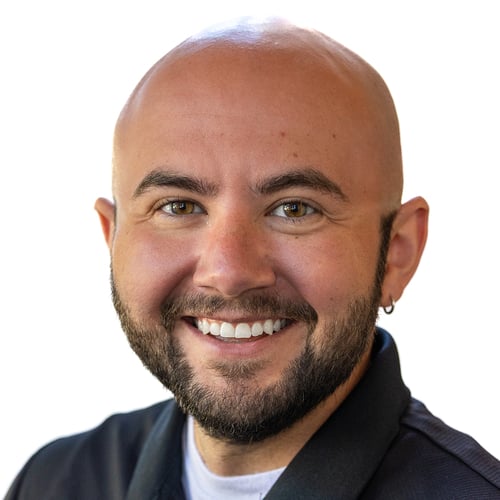
Jake Abraham ’16
Assistant Professor of Social Work
Academic Credentials
- Keuka College
- B.S.W.
- University at Buffalo
- M.S.W.
Biography
Jake Abraham is a 2016 Keuka College alumnus and received his master’s degree from the University at Buffalo. He has provided numerous trainings related to the LGBTQ community and, for the last five years, has worked in various school systems with children from kindergarten to 12th grade. Jake has experience in working in a clinical setting, as well as doing street outreach and prevention.
Professional Interests
Education and support of the LGBTQ+ community. Working with children and their families. Exploring the impact of trauma and grief across the lifespan.
Katie Basu, LCSW-R
Visiting Assistant Professor of Social Work
Academic Credentials
- Mansfield University
- B.S.W.
- Temple University
- M.S.W.
Biography
Katie is committed to advancing social workers’ expertise in evidence-based practice theories to foster positive therapeutic outcomes. Her professional background includes significant experience in program development and leadership within rural mental health and substance-use treatment settings, as well as providing direct clinical care.
Katie has specialization in treating co-occurring disorders, with a particular emphasis on trauma and adverse childhood experiences. She is dedicated to the importance of clinical supervision for early-career social workers and holds certification as a clinical supervisor. Additionally, Katie serves as a national trainer in the prevention and management of disruptive behavior. She has received national recognition from the Department of Veterans Affairs for her work in improving utilization of measurement-based care tools to reduce suicidality among high-risk veteran populations and for expanding access to residential services for veterans nationwide.
As a consultant for local rural health networks, Katie offers subject matter expertise on substance use and mental health treatment, contributing to data collection and analysis to inform Community Health Improvement Plans. Katie has been published through the Bureau of Justice Assistance Comprehensive Opioid, Stimulant, and Substance Abuse Program regarding Peer Recovery Support Services in NY Opioid Intervention Courts. She graduated as an LMSW from Temple University in Philadelphia and received her BSW from Mansfield University of Pennsylvania.
Professional Interests
Reducing suicidality among high-risk veteran populations through measurement-based care. Accessibility and inclusion of peer recovery advocates for rural MH and SUD initiatives. Rural overdose trends, Data collection and naloxone training. Sustainable program development for MH and SUD services within the agricultural community. Enhancing the role of clinical supervision for new social workers. Prevention and management of disruptive behavior. Public policy and social change.
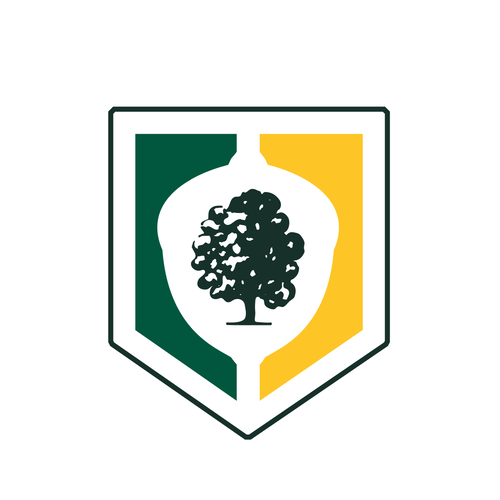
Rita Braun
MSW Field Director
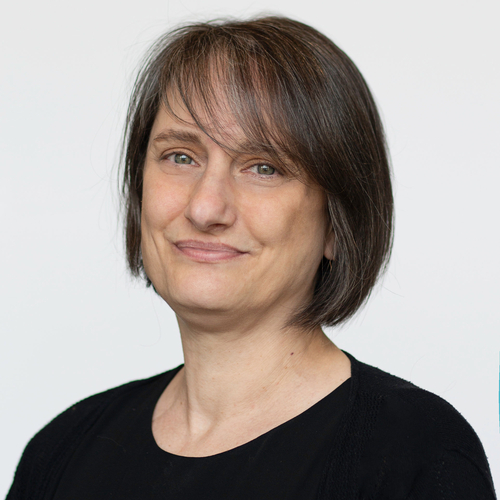
Dr. Julie Burns
Associate Professor of Social Work
Academic Credentials
- Union Institute and University
- Ph.D.
- Nazareth College
- M.S.W.
- SUNY College at Buffalo
- B.S.
Biography
Dr. Julie Burns began her interest in Social Work as an activist during her teenage years and has been a professional Social Worker for 30 years.
She has participated in community organizing, planning, and leading demonstrations of civil disobedience in her community. She has a passion for working with people with disabilities and has spent the bulk of her career working with people with intellectual disabilities and their families in grassroots organizations.
Her work as direct care staff, educator, trainer, counselor, program developer, and administrator has provided a solid foundation for linking theory to practice. She has always believed that education can change the world and is deeply honored to teach the next generation of Social Workers.
Professional Interests
Public Policy and Social Change, Women's Healthcare, Reproductive Justice, Intellectual Disabilities, Human and Civil Rights, Diversity, Equity and Inclusion, Narrative Inquiry and Critical Theories.
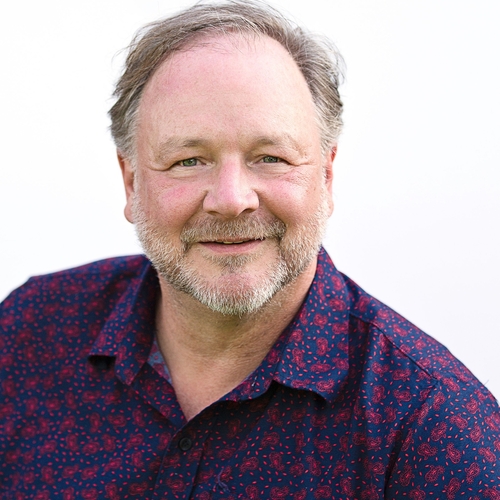
Christopher Clinton
Associate Professor of Social Work
Academic Credentials
- Syracuse University School of Social Work
- M.S.W.
- Binghamton University
- B.A.
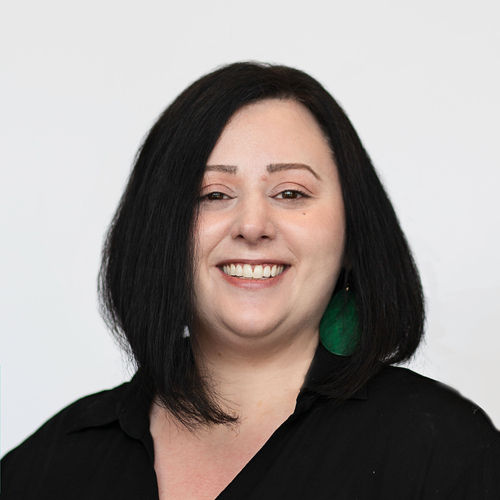
Cindy Easling
Administrative Assistant
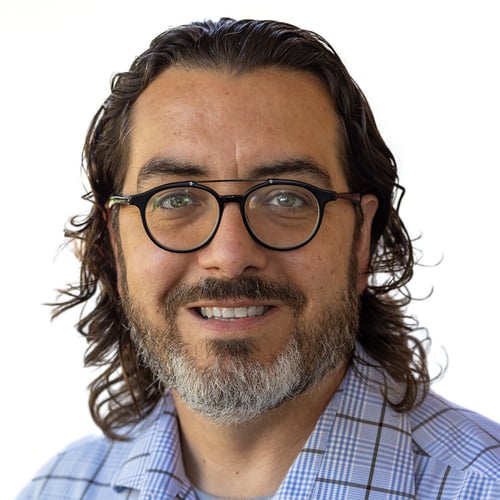
Michael Emmart
Assistant Professor of Criminal Justice
Academic Credentials
- Liberty University
- B.S. in Psychology
- Kansas State University
- M.S. in Positive Youth Development
- Liberty University
- Ed.D. in Curriculum & Instruction
Biography
Dr. Michael Emmart is an oft sought-out voice on initiatives involving child welfare, juvenile justice, and cross-over youth. He served in a variety of roles during more than 25 years in the field, including direct service staff, case worker, counselor, trainer, senior administrator, nonprofit executive, and university-based consultant. While working as a subject matter expert employed by the University of Albany, co-located with the NYS Office of Children and Family Services, he worked extensively on the Raise the Age initiative, as well as implementation of the Family First Prevention Services Act.
Dr. Emmart is a founding member of the Institute for Just Outcomes through Conversation (IJOC), which is housed within Case Western Reserve University’s Fowler Center for Business as an Agent of World Benefit, and has served as executive director since its inception. IJOC’s mission is to foster community-driven change through conversations that empower communities to thrive. He has spoken and written extensively on the value of incorporating positive, inquiry-based conversations in our communities and workplaces.
Professional Interests
Strengthening the connection between communities and the systems intended to serve them. Appreciative inquiry. Positive nonviolence. Community-engaged prevention science. Designing and evaluating initiatives that build collective efficacy, foster authentic partnerships, and shift power toward community-defined visions of success. Developing strengths-based tools to support positive systems change and deepen community voice in policy and service delivery.
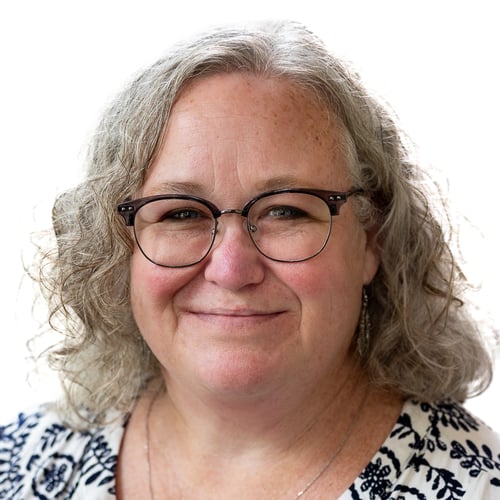
Amy Hickey-Smith ’10 M’20, LCSW
Assistant Professor of Social Work
Academic Credentials
- Keuka College
- B.S.W.
- Keuka College
- M.S.W.
Biography
Amy Hickey-Smith (she/her) is a Licensed Clinical Social Worker and educator with over a decade of experience in trauma-informed care, feminist clinical practice, and LGBTQ+ mental health. A proud Keuka College alumna, she brings an anti-oppressive, community-focused lens to both her teaching and clinical work. Her professional background includes hospital social work, nonprofit leadership, private practice, and higher education. She specializes in gender-affirming care, relational diversity, and supporting trauma survivors. Amy is the founder of the LGBTQ Center of the Finger Lakes and an active Pride organizer. In addition to teaching across the MSW curriculum, Amy serves as vice president of the Board of Directors at the Hickok Center for Brain Injury and is a long-standing member of the NASW-NYS Diversity and Inclusion Committee.
Professional Interests
Trauma-informed and feminist clinical social work. LGBTQ+ mental health and gender-affirming care. Inclusive and anti-oppressive pedagogy. Ethical non-monogamy and relational diversity. Community organizing and pride-based activism. Private practice and program development for marginalized communities.

Tracy Leet
Assistant Professor of Social Work
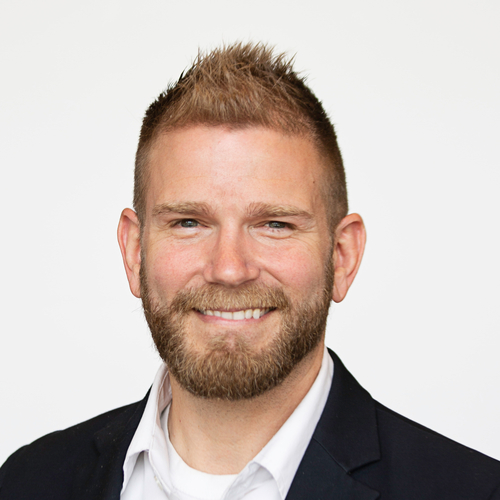
Dr. Jason McKinney
Professor of Social Work
Academic Credentials
- University of Rochester
- Ph.D.
- Roberts Wesleyan College
- M.S.W.
- Roberts Wesleyan College
- B.S.W.
Biography
Dr. Jason McKinney earned a Bachelor of Science degree and Master of Science degree in Social Work from Roberts Wesleyan College and a PhD in Human Development from the University of Rochester. Dr. McKinney has authored articles in peer reviewed journals, including Child and Family Services Review and The Journal of Critical Social Work. He has also published articles in The New Social Worker. His research interest is in the developing self across the life span, and most recently within caregiver-child interactions. In 2006, Dr. McKinney received the Scandling Scholar Award from the University of Rochester. Dr. McKinney's practice experience includes family therapy, parent-training curriculums, and the design and implementation of a successful therapeutic foster care program in Rochester, NY. Prior to joining Keuka College, Dr. McKinney taught at Ashland University as an Assistant Professor of Social Work and adjunct at The Greater Rochester Collaborative, State University of New York (SUNY, Brockport) and Nazareth College, and also at Roberts Wesleyan College. He places a strong emphasis on the need for research in social welfare and enjoys providing students with opportunities for meaningful research.
Professional Interests
Research in Selfhood and Identity Development within Cultural Categories Across the Lifespan Using Socio-Linguistic and Discourse Analytic Methodology, Effects of the Child Welfare System on Children and Families, Community-based Action Research on Aging Well.
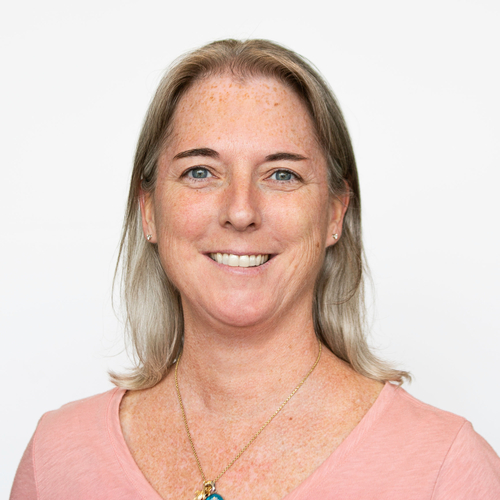
Jen Mealey ’99
Professor of Social Work
Academic Credentials
- Nazareth College
- M.S.W.
- Keuka College
- B.S.

Andrea Mourey
Instructor of Criminology
Academic Credentials
- Walden University
- Ph.D. in Public Policy and Administration
- Marist College
- M.S. in Public Administration
- Columbia College
- B.S. in Criminal Justice & Psychology
- Onondaga Community College
- A.S. in Science
Biography
Dr. Mourey is a seasoned criminal justice professional with more than 30 years of combined experience in law enforcement, military leadership, and higher education. She is a retired police sergeant with the Onondaga County Sheriff's Office, a lieutenant colonel and supervisory investigator with the National Guard Bureau’s Office of Complex Investigations, and the former director of Campus Safety and Law Enforcement at Onondaga Community College. In her role at OCC, Dr. Mourey led department operations, implemented a student-centered community policing model, and served as incident commander for campus emergencies, coordinating efforts with local, state, and federal agencies.
Dr. Mourey has been an adjunct professor at Keuka College since 2005, teaching a variety of undergraduate and graduate courses, such as Juvenile Delinquency, Current Issues in Law Enforcement, Statistics for Action Research, and Criminal Justice as Public Policy. Recognized as Adjunct Instructor of the Year in 2015, she is known for her rigorous, student-centered instruction and has frequently been requested to serve on student defense boards.
Professional Interests
Education, national service, and public safety. Evidence-based teaching, curriculum development, and mentorship in criminal justice, public administration, and ethics. Integrity, leadership development, and mission readiness in military service. Complex investigations and organizational accountability. Investigative excellence, interagency cooperation, and fostering public trust in law enforcement. Public service, continuous learning, and ethical application of authority.
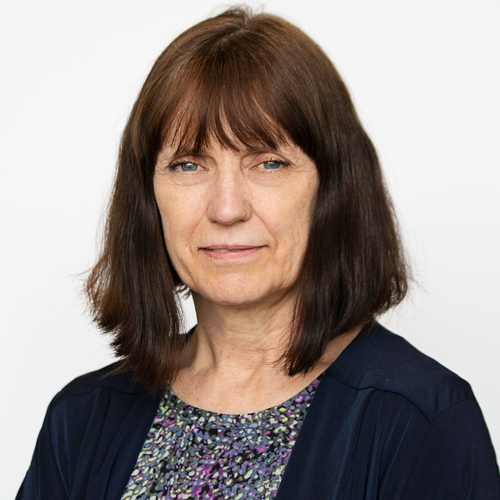
Dr. Vikki O'Connor
Professor of Social Work
Academic Credentials
- Syracuse University
- Ph.D.
- Syracuse University
- M.S.W.
- SUNY Empire State College
- B.S.
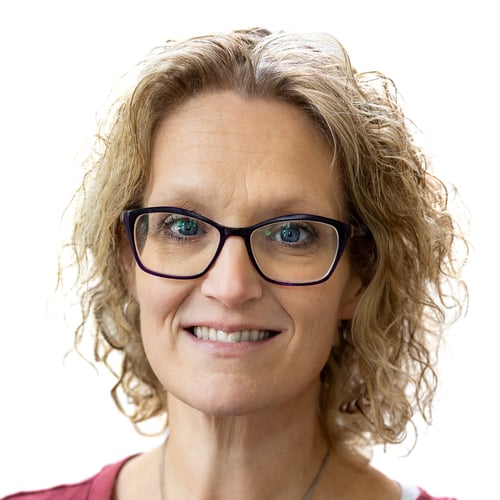
Dr. Bethanie Pacheco, LCSW
Assistant Professor of Social Work
Academic Credentials
- University of Dayton
- B.A. in Criminal Justice
- Roberts Wesleyan College
- M.S.W.
- University of Louisville
- D.S.W.
Biography
Dr. Beth Pacheco earned a Bachelor of Arts degree in Criminal Justice from the University of Dayton, a Master of Social Work degree from Roberts Wesleyan College, and a Doctor of Social Work degree from the University of Louisville. Dr. Pacheco’s practice experience includes emergency psychiatry, inpatient psychiatry, individual therapy, clinical supervision, program evaluation and process improvement, development of in-service training curriculums, and orientation and onboarding programs for telehealth therapeutic programs.
Prior to joining Keuka College, Dr. Pacheco taught as an adjunct at SUNY Brockport and provided in-service training and field placement supervision for MSW student therapist interns at the University of Louisville. She is committed to bridging theory and practice through critical thinking and real-world application. She places a strong emphasis on socially and culturally competent care and is passionate about preparing students to lead with integrity, empathy, and effectiveness in diverse spaces.
Professional Interests
Rural mental health. ADHD and neurodiversity clinical interventions. Life skill building. School setting and classroom support. Telehealth therapy competency and program development. Clinical supervision competency. Effects of sibling loss on family dynamics, roles, and relationships throughout the life span. Program evaluation and quality process/policy improvement.
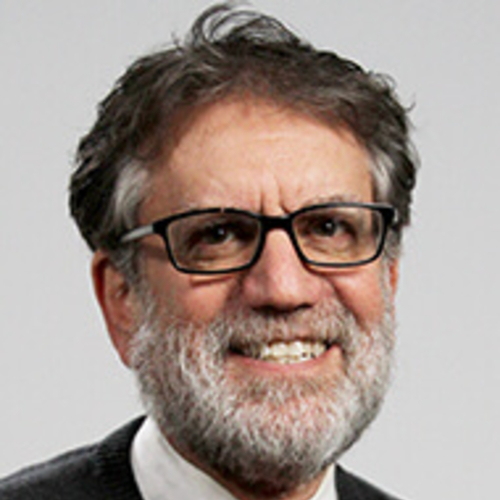
Dr. Ed Silverman
Professor of Social Work
Academic Credentials
- University of Maryland
- Ph.D.
- SUNY Binghamton
- M.B.A.
- University of Maryland
- M.S.W.
- SUNY Binghamton
- B.A.

Michael Smith
Instructor of Criminal Justice
Academic Credentials
- West Chester University
- M.S. in Criminal Justice
- Wilmington University
- B.S. in Criminal Justice
- University of Great Falls/College of
- A.S. in Criminal Justice
Biography
Michael Smith joined the U.S. Air Force as a security policeman during the Vietnam and Cold War eras. He completed an associate degree in criminal justice while on active duty at the University of Great Falls in Montana. He continued his collegiate and professional education while working 12-hour patrol shifts. Prof. Smith joined patrol operations and rose through the ranks – patrolman, sergeant, captain, officer in charge – before retiring as a chief. His past assignments covered a regional County S.W.A.T., DARE, radar, accident reconstruction, physical training, and firearms instructor. Prof. Smith attended the FBI National Academy in Quantico, Virginia, graduating as a member of the 209th session. He is a past-president of the Gloucester County Police Chiefs Association and remains active in the association, even after his retirement.
Prof. Smith has worked with civilian educators, businesses owners, and law enforcement support organizations to make presentations on behalf of officer awareness, terrorism and bioterrorism, domestic violence, and police/community relations, As chief, he and his administrative staff officers worked on local and regional “large scale” security projects that affected law enforcement funding for critical infrastructure protection.
Prof. Smith taught as adjunct faculty for more than 18 years before securing his current full-time instructor position with Keuka College. He relinquished his certification with the New Jersey State Police Training Commission as an instructor after serving for 32 years (without compensation). He has attended and participated in executive leadership exchange development seminars over several years, visiting London, the Greater Manchester Police, the Garda Academy in Templemore, Ireland, and The Police College in Scotland.
Prof. Smith is also a life member of the International Association Chiefs of Police (IACP) and has been a member of the FBI National Academy Associates joining three different chapters: The New Jersey and Eastern Pennsylvania chapters and, currently, the Eastern Canada and New York chapter.
His military, law enforcement, career development, professional educational experience and academic teaching span a total of 48 years.
Professional Interests
Prof. Smith is dedicated to improving the level of professionalism, ethical and moral commitment, accountability, integrity, dedication, and expertise of those who demand more of themselves, while seeking to improve individual purpose and achieve organizational excellence. He remains connected and continues to offer his knowledge and practitioner experience and diverse knowledge to his students at Keuka College. He offers students the ability to recognize and understand their new role(s) in a society that is changing far more rapidly than anyone can keep pace with … organizationally, professionally, politically, and economically.
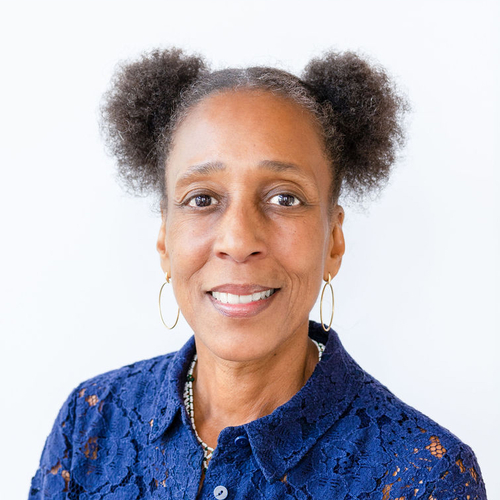
Dr. Sekai Turner
Honors Program Director
Associate Professor of Social Work
Academic Credentials
- University of Maryland
- Ph.D. in Human Development
- University of Pittsburgh
- M.S.W. in Social Work
- Cornell University
- M.P.S. in Africana Studies
- Spelman College
- B.A. in Psychology
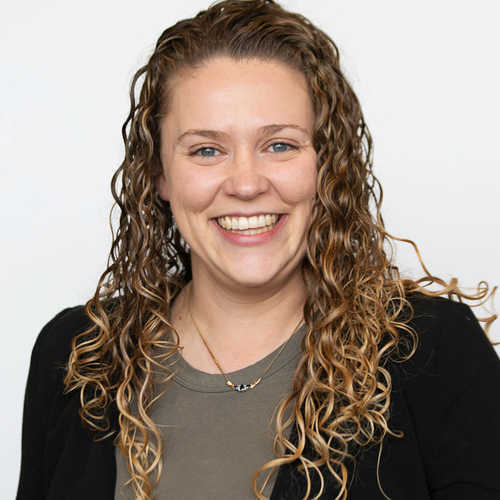
Melissa Vangellow ’16
Director of Clinical Placements
Academic Credentials
- New York University
- M.S.W.
- Keuka College
- B.S. in Social Work
- Keuka College
- B.A. in Psychology
